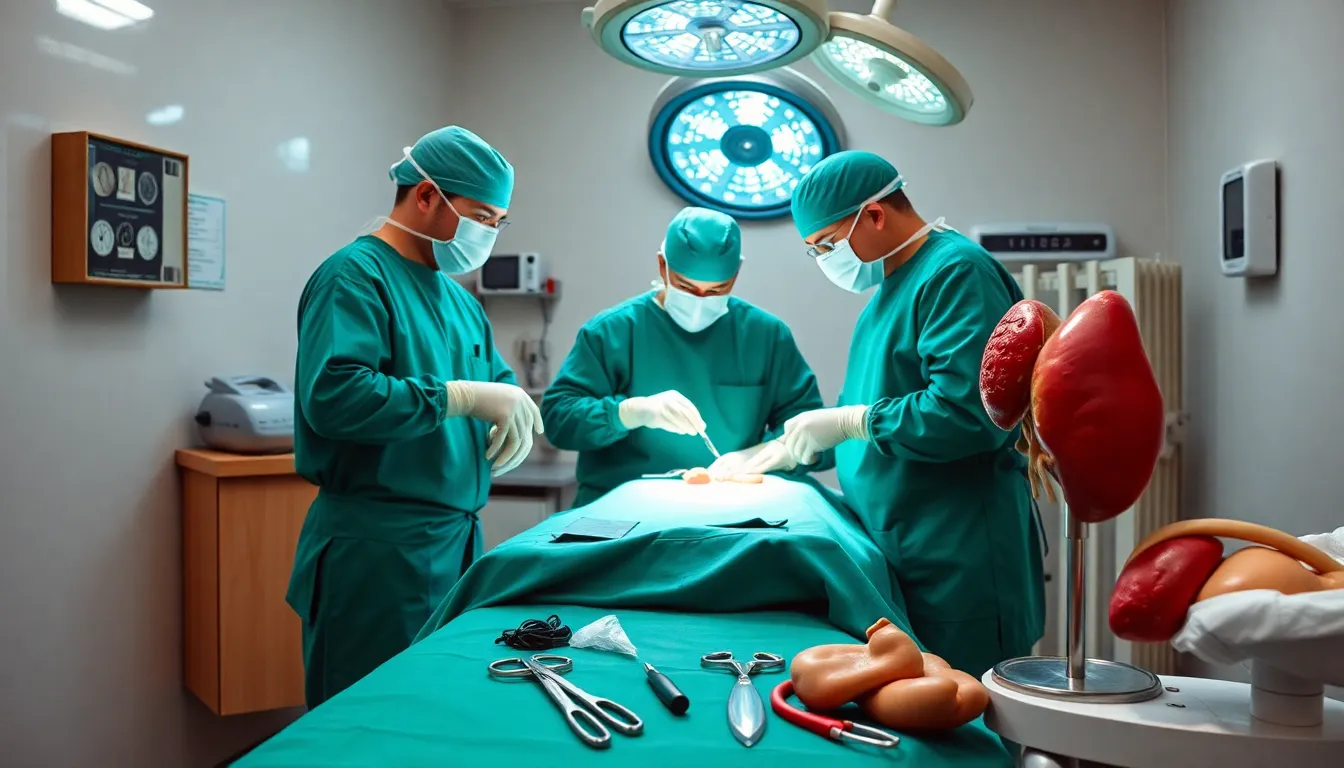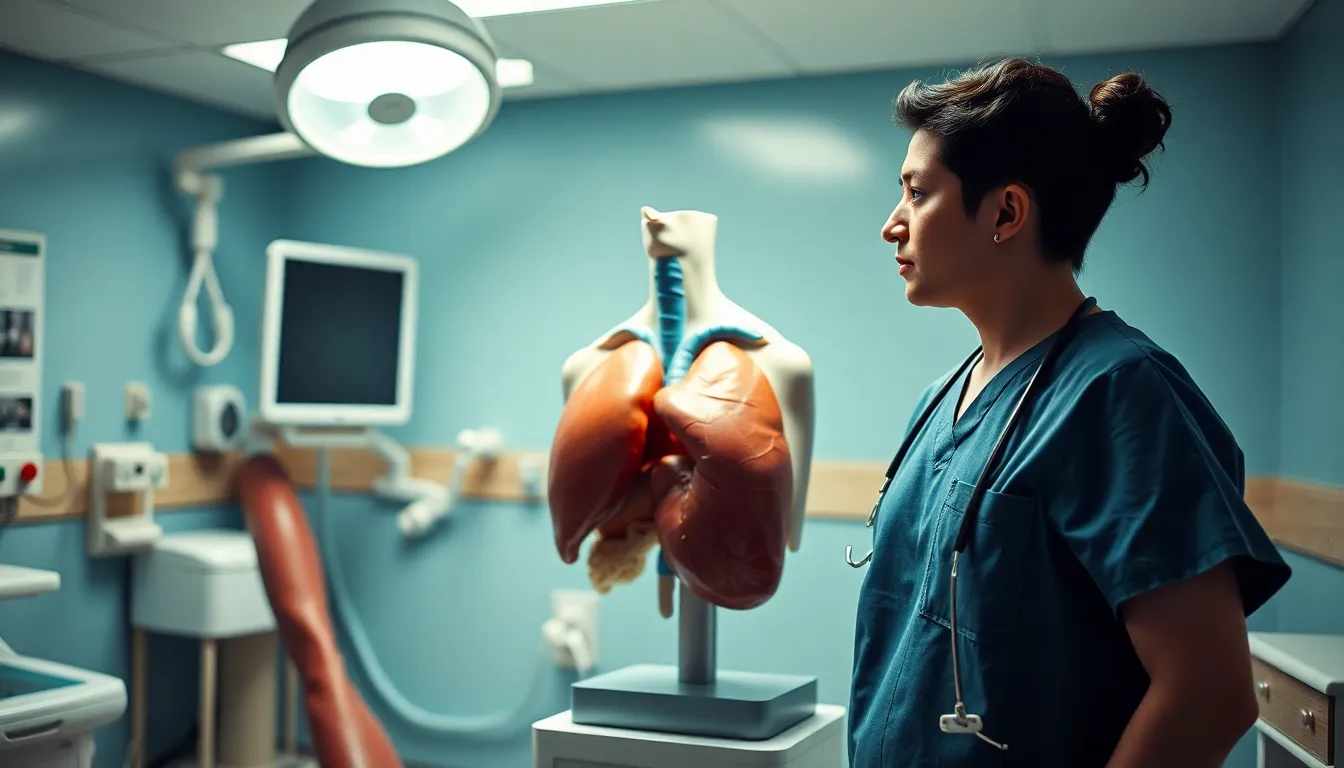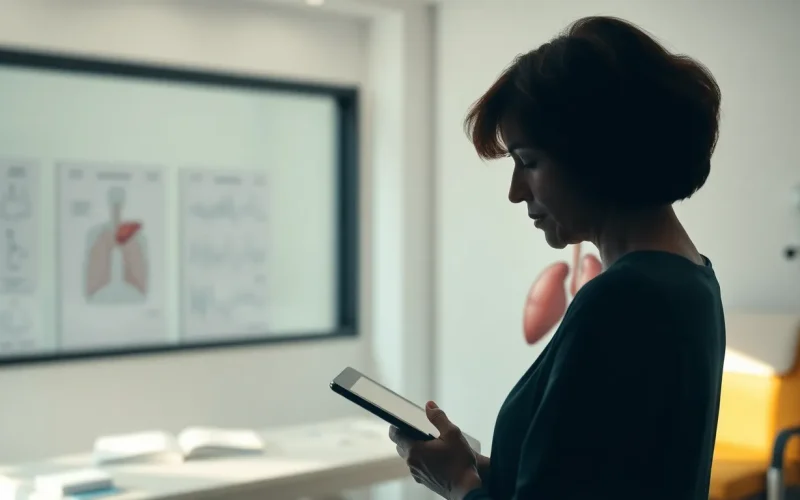Table of Contents
ToggleEver found yourself pondering the big questions in life, like whether you really need your spleen? Sure, it’s not the most glamorous organ, but it plays a role in keeping your immune system in check. Imagine a tiny bouncer at a club, making sure only the right guests get in—no unwanted infections allowed!
Understanding the Spleen
The spleen plays a vital role in the body’s immune response. This organ may appear unremarkable, yet its functions significantly impact overall health.
Anatomy of the Spleen
The spleen is located in the upper left quadrant of the abdomen, near the stomach. It varies in size, typically measuring about 4 to 5 inches long. The organ consists of two main types of tissue: red pulp and white pulp. Red pulp aids in filtering blood and recycling iron, while white pulp is crucial for immune function. Blood flow through the spleen allows for the detection of pathogens and old blood cells.
Functions of the Spleen
The primary functions of the spleen include filtering blood and producing lymphocytes. It filters out dead cells and debris, maintaining healthy blood quality. Lymphocytes generated by the spleen are essential for fighting infections. Additionally, the spleen stores platelets and white blood cells, ready to release them when needed. In cases of infection, the spleen’s activity increases, rapidly producing immune cells. These functions highlight the spleen’s importance in the body’s defense system.
Reasons for Spleen Removal


Spleen removal becomes necessary due to specific medical conditions that compromise its functionality or pose serious health risks.
Medical Conditions Requiring Removal
Certain conditions often lead to spleen removal, including traumatic injury, splenic rupture, and specific blood disorders. Trauma can cause significant damage, making removal the best option for patient safety. Conditions like hypersplenism result in the spleen over-functioning, leading to excessive destruction of blood cells. Cancer involving the spleen, or the presence of tumors, may necessitate its removal to prevent further complications. As a result, surgeries like splenectomy help manage these issues effectively.
Risks and Complications of Spleen Removal
Spleen removal presents potential risks and complications that require careful consideration. Infection becomes a major concern, especially post-surgery, as the body loses an important immune component. Certain vaccines may become necessary to fend off infections like pneumonia and meningitis. Blood clotting problems can also arise after splenectomy, contributing to an increased risk of conditions such as thrombosis. Monitoring health closely after surgery is crucial for managing these potential complications and ensuring recovery.
Impact of Living Without a Spleen
Living without a spleen significantly alters several aspects of health. Understanding these changes helps in adjusting to life after splenectomy.
Immune System Changes
Immune responses shift after spleen removal. The body loses a key organ responsible for filtering bacteria and generating immune cells. Individuals become more vulnerable to infections, especially from encapsulated bacteria like Streptococcus pneumoniae and Neisseria meningitidis. Vaccination plays an essential role in providing added protection against these pathogens. Regular medical check-ups and prompt treatment for infections become crucial to prevent severe complications. Monitoring inflammation levels also helps manage their health effectively.
Lifestyle Adjustments
Lifestyle changes are often necessary post-splenectomy. Engaging in regular medical follow-ups with healthcare providers helps monitor health status. Individuals may consider adopting a more cautious approach to activities, as injuries can pose greater risks without a spleen. Staying up to date with vaccinations is critical, and this includes flu and pneumonia shots. A balanced diet supports immune function, while hydration aids overall health. Staying informed about signs of infection also ensures timely medical intervention when needed.
Alternative Treatments and Solutions
Understanding how to adapt after spleen removal is essential for maintaining health. Two crucial areas to focus on include vaccinations and nutritional considerations.
Vaccinations and Preventative Care
Vaccinations play an important role for individuals without a spleen. These individuals face increased vulnerability to infections from encapsulated bacteria. Healthcare providers often recommend vaccinations against pneumococcus, meningococcus, and Haemophilus influenzae type b. Regular booster shots can enhance protection, ensuring that immunity remains robust. Keeping track of vaccination schedules reduces the risk of severe infections and complications. Drawing on annual medical visits provides opportunities for healthcare professionals to assess immunity levels and adjust vaccine needs accordingly.
Nutritional Considerations
Nutritional choices impact immune health significantly after spleen removal. A balanced diet rich in vitamins and minerals supports overall well-being. Emphasizing fruits, vegetables, lean proteins, and whole grains promotes better immune function. Iron-rich foods help replenish what’s lost during blood recycling, although the body continues its vital processes without the spleen. Staying hydrated is essential since it aids in maintaining blood volume and supports bodily functions. Incorporating probiotics may also benefit gut health, enhancing immune response further.




